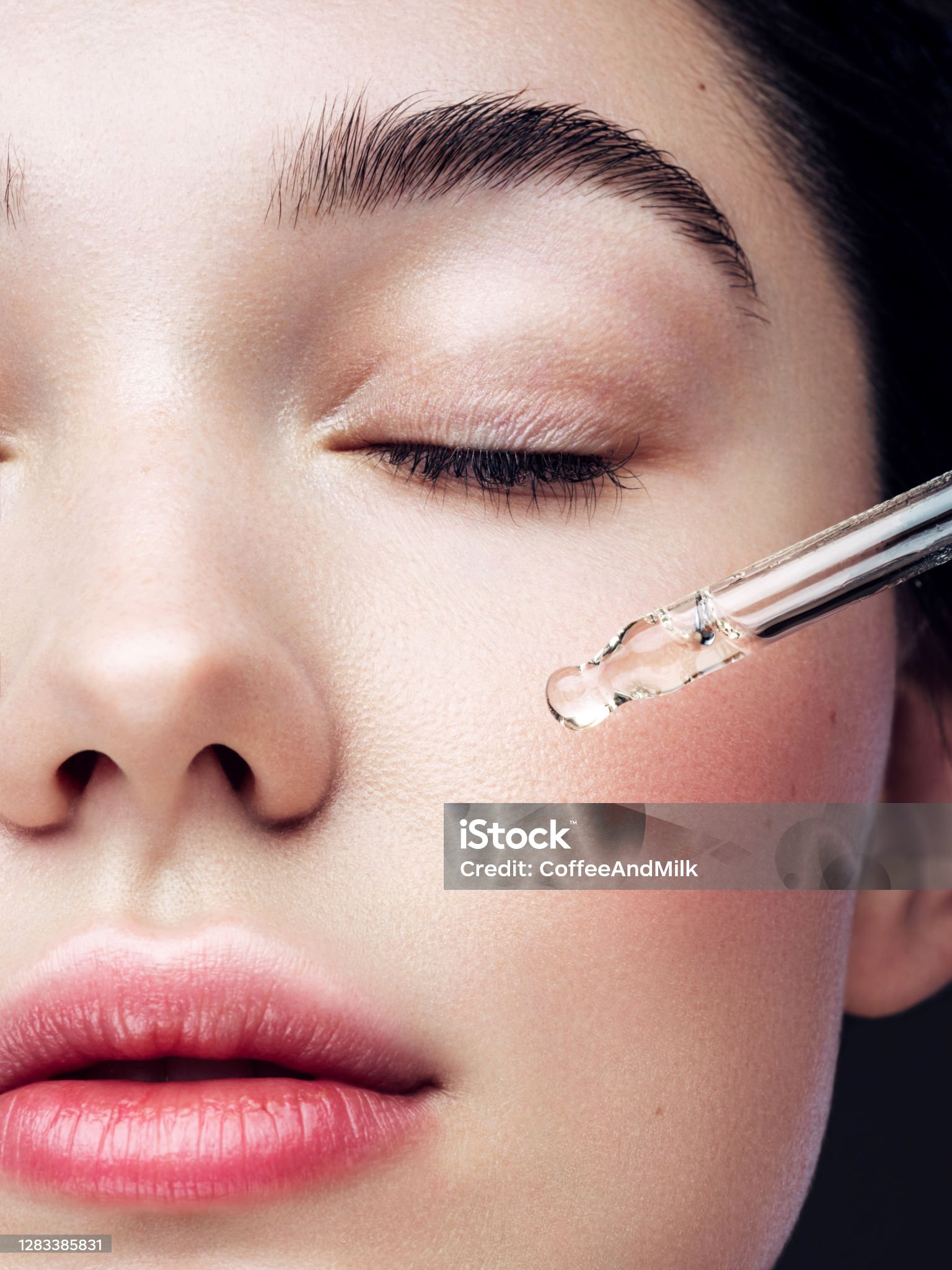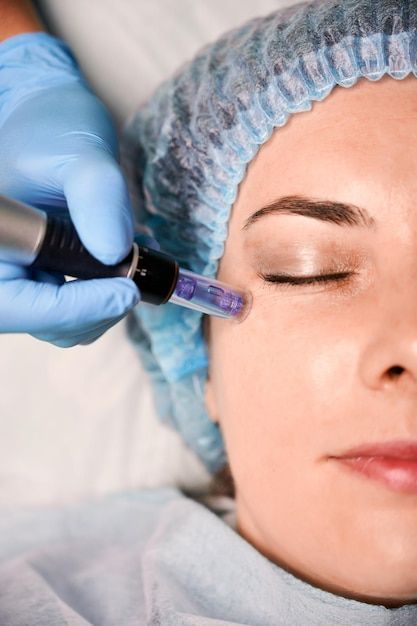How to repair your skin barrier at home step by step , top skin care prodcut good for skin barrier repair
Maintaining a healthy skin barrier is crucial for overall skin health. When the skin barrier is compromised, it can lead to various issues, including dryness, irritation, and increased sensitivity. Fortunately, repairing the skin barrier at home is achievable with the right steps and skin care products.

Understanding how to repair the skin barrier involves identifying the right skin care products and adopting a consistent skincare routine. By using products rich in ingredients that nourish and protect the skin, individuals can help restore their skin’s natural barrier function.
Key Takeaways
- Identify the right skin care products for skin barrier repair.
- Understand the importance of a consistent skincare routine.
- Learn how to restore the skin’s natural barrier function.
- Discover key ingredients that nourish and protect the skin.
- Adopt a step-by-step approach to repairing the skin barrier at home.
Understanding the Skin Barrier Function
Understanding the skin barrier function is essential for maintaining healthy skin. The skin barrier, also known as the stratum corneum, is the outermost layer of the epidermis. It plays a crucial role in protecting the body from external factors such as water loss, temperature, and environmental stressors.
What Is the Skin Barrier Layer?
The skin barrier layer is composed of dead skin cells held together by lipids, creating a hydrophobic (water-repelling) environment. This layer is crucial for preventing water loss and protecting against the entry of harmful substances. A healthy skin barrier is essential for maintaining skin hydration and overall skin health. As noted by a dermatological expert, “The skin barrier function is vital for preventing transepidermal water loss and protecting against environmental aggressors.”
Why a Healthy Skin Barrier Matters
A healthy skin barrier matters because it prevents conditions such as dryness, irritation, and increased sensitivity. When the skin barrier is compromised, it can lead to various skin issues, including eczema and dermatitis. Maintaining a healthy skin barrier is crucial for overall skin well-being. A robust skin barrier also enhances the skin’s natural ability to regenerate and repair itself. As a specialist emphasizes, “A strong skin barrier is the foundation of healthy, resilient skin.”
Signs of a Damaged Skin Barrier
Recognizing the signs of a compromised skin barrier is the first step towards repairing it. A damaged skin barrier can lead to various skin issues, making it essential to identify the symptoms early on.
Common Symptoms to Watch For
When the skin barrier is compromised, it can manifest through several common symptoms. These include:
- Increased sensitivity: The skin becomes more reactive to products and environmental factors.
- Dryness and tightness: The skin feels dry, tight, and may appear flaky.
- Redness and irritation: Compromised skin often appears red and irritated.
- Itchiness: Itching can be a persistent issue when the skin barrier is damaged.
These symptoms can significantly impact one’s quality of life, making it crucial to address them promptly.
Differentiating from Other Skin Conditions
It’s often challenging to differentiate between a damaged skin barrier and other skin conditions such as eczema or psoriasis. However, certain characteristics can help in distinguishing between them.
For instance, conditions like eczema tend to have a more chronic nature and may involve more intense inflammation. On the other hand, a damaged skin barrier might respond well to simplified skincare routines and barrier repair products.
“Understanding the root cause of your skin issue is key to effective treatment.” – Dermatology Expert
By closely examining the symptoms and potentially consulting a dermatologist, one can accurately diagnose the issue and begin appropriate treatment.
Common Causes of Skin Barrier Damage
Understanding the causes of skin barrier damage is crucial for effective repair. The skin barrier can be compromised by a multitude of factors, ranging from external environmental stressors to internal health conditions and the use of harsh skincare products.
Environmental Factors
Exposure to environmental stressors such as pollution, extreme temperatures, and UV radiation can significantly damage the skin barrier. Pollution can lead to the formation of free radicals, which in turn can impair the skin’s natural lipid bilayer, compromising its barrier function.
Harsh Skincare Products and Routines
The use of harsh skincare products or overly aggressive skincare routines can strip the skin of its natural oils, leading to barrier damage. Products containing high concentrations of alcohol or fragrances can be particularly detrimental. Simplifying skincare routines and opting for gentle, fragrance-free products can help mitigate this damage.
Internal Factors and Health Conditions
Internal factors, including health conditions such as diabetes, eczema, and autoimmune disorders, can also impact the skin barrier. For instance, individuals with diabetes may experience impaired wound healing, which can affect the skin’s barrier function. Understanding these internal factors is key to addressing skin barrier damage comprehensively.
| Cause | Description | Impact on Skin Barrier |
|---|---|---|
| Environmental Factors | Exposure to pollution, extreme temperatures, UV radiation | Damage to lipid bilayer, impaired barrier function |
| Harsh Skincare Products | Use of products with high alcohol or fragrance content | Stripping of natural oils, barrier damage |
| Internal Factors | Health conditions like diabetes, eczema, autoimmune disorders | Impaired wound healing, compromised barrier function |
Essential Steps for Skin Barrier Repair at Home
Repairing the skin barrier at home requires a multi-faceted approach that involves simplifying your skincare routine and adopting gentle practices. This comprehensive strategy is designed to help restore the skin’s natural barrier function.
Step1: Simplify Your Routine
Simplifying your skincare routine is the first step towards skin barrier repair. Reducing the number of products used can help minimize irritation and allow the skin to recover. Focus on using gentle, non-comedogenic products that are formulated for your skin type.
Step2: Gentle Cleansing Techniques
Gentle cleansing is crucial for maintaining a healthy skin barrier. Use a mild cleanser that effectively removes dirt without stripping the skin of its natural oils. Avoid using hot water, which can further dry out the skin, and instead opt for lukewarm water.
Step3: Hydration and Moisturizing
Proper hydration and moisturizing are essential for skin barrier repair. Hyuloronic acid and ceramides are key ingredients that help lock in moisture and support the skin’s barrier function. Apply a moisturizer immediately after cleansing to maximize hydration.
Step4: Protection from Environmental Stressors
Protecting the skin from environmental stressors is vital for maintaining a healthy skin barrier. Use a broad-spectrum sunscreen with an SPF of at least 30 daily, and consider wearing protective clothing when going outdoors. Avoid exposure to harsh weather conditions and pollution.
| Step | Description | Key Ingredients |
|---|---|---|
| Simplify Routine | Reduce product usage, minimize irritation | Gentle, non-comedogenic products |
| Gentle Cleansing | Mild cleanser, lukewarm water | Mild cleansers |
| Hydration & Moisturizing | Lock in moisture, support barrier function | Hyaluronic acid, ceramides |
| Protection | Protect from environmental stressors | Broad-spectrum sunscreen (SPF 30+) |

Best Ingredients for Skin Barrier Repair
When it comes to skin barrier repair, certain ingredients stand out for their ability to restore and strengthen the skin. These ingredients work synergistically to replenish and repair the skin’s natural barrier, enhancing its resilience against environmental stressors.
Ceramides and Their Benefits
Ceramides are essential for skin health as they help restore the skin’s barrier function. They are naturally occurring lipids that can be found in high concentrations in the skin’s outer layer. Using ceramide-rich products can help repair a damaged skin barrier by replenishing these vital lipids.
Hyaluronic Acid and Humectants
Hyaluronic acid is a powerful humectant that can hold up to 1000 times its weight in water, making it an excellent ingredient for hydrating the skin. By maintaining moisture levels, hyaluronic acid helps to support the skin’s barrier function and improve its overall appearance.
Niacinamide and Its Restorative Properties
Niacinamide is a versatile ingredient that not only improves the skin’s barrier function but also enhances its elasticity and reduces inflammation. It is particularly beneficial for addressing skin concerns related to a compromised barrier.
Fatty Acids and Oils
Fatty acids and oils are crucial for maintaining the skin’s barrier integrity. They help to nourish and protect the skin, promoting a healthy and resilient barrier. Ingredients like omega-3 fatty acids and various plant oils are particularly beneficial.
Top Skin Barrier Repair Products Worth Trying
A compromised skin barrier can be challenging to repair, but certain products can make a significant difference. The right skincare products can help restore the skin’s natural barrier function, reducing sensitivity and improving overall skin health.

Gentle Cleansers for Compromised Skin
For skin with a damaged barrier, gentle cleansers are essential. CeraVe Hydrating Cleanser and Vanicream Gentle Facial Cleanser are highly recommended for their non-irritating formulas that clean without stripping the skin of its natural oils.
Hydrating Serums and Treatments
Hydrating serums can provide an intense dose of moisture to help repair the skin barrier. Look for products containing hyaluronic acid, such as Neutrogena Hydro Boost Water Gel, or those with niacinamide, like Olay Regenerist Micro-Sculpting Serum.
Barrier-Restoring Moisturizers and Creams
Moisturizers play a crucial role in skin barrier repair. Cetaphil Moisturizing Cream and La Roche-Posay Toleriane Ultra Fluid are rich in ingredients that help restore the skin’s barrier function while providing long-lasting hydration.
Overnight Repair Treatments
Overnight treatments can offer an intensive repair solution. Products like Laneige Water Bank Hydrating Overnight Mask provide intense hydration and help repair the skin barrier while you sleep.
Budget-Friendly Skin Barrier Products
Repairing the skin barrier doesn’t have to break the bank. Affordable options like CeraVe Moisturizing Cream and Aloe vera gel can be very effective. These products offer great value for their price and can be integral to a skin barrier repair routine.
How to Strengthen Your Skin Barrier Long-Term
A strong skin barrier is the result of a combination of daily habits and lifestyle choices. To achieve long-term skin health, it’s crucial to understand the factors that contribute to a resilient skin barrier.
Daily Habits for Skin Barrier Health
Developing daily habits that support skin health is vital. This includes using gentle skincare products, avoiding harsh cleansers, and applying moisturizer regularly to keep the skin hydrated. Consistency is key in maintaining a healthy skin barrier.
Another important habit is to protect your skin from the sun by using a broad-spectrum sunscreen with a suitable SPF. This helps prevent damage from UV rays, which can compromise the skin barrier.
Lifestyle Factors That Support Skin Barrier Function
Lifestyle factors play a significant role in skin barrier health. A balanced diet rich in omega-3 fatty acids, vitamins, and minerals can help support skin health. Additionally, staying hydrated by drinking plenty of water is essential for maintaining skin hydration levels.
Managing stress through relaxation techniques such as meditation or yoga can also positively impact skin health, as high stress levels can exacerbate skin issues. Ensuring adequate sleep is another critical factor, as it allows the skin to repair and regenerate.
Conclusion
Repairing and maintaining the skin barrier is crucial for achieving healthy, resilient skin. By simplifying skincare routines, using gentle products, and protecting the skin from environmental stressors, individuals can significantly improve their skin’s health.
A healthy skin barrier is essential for locking in moisture and keeping irritants out. Using products rich in ceramides, hyaluronic acid, and niacinamide can help restore the skin’s natural barrier function. Consistency is key to skin barrier maintenance.
By incorporating the discussed strategies into daily routines, individuals can enjoy long-term benefits of a healthy skin barrier, including improved skin elasticity and reduced sensitivity. Focusing on skin barrier maintenance is a proactive approach to overall skin health.
FAQ
What are the signs of a damaged skin barrier?
Common signs include redness, irritation, dryness, itchiness, and increased sensitivity. If you’re experiencing these symptoms, it may be a sign that your skin barrier is compromised.
How can I repair my skin barrier at home?
To repair your skin barrier, simplify your skincare routine, use gentle cleansing techniques, and moisturize regularly. You can also use products containing ceramides, hyaluronic acid, and niacinamide to help restore your skin barrier.
What products are best for skin barrier repair?
Look for products containing ingredients like ceramides, hyaluronic acid, niacinamide, and fatty acids. Some top products for skin barrier repair include gentle cleansers, hydrating serums, barrier-restoring moisturizers, and overnight repair treatments.
How can I strengthen my skin barrier long-term?
To maintain a healthy skin barrier, adopt daily habits like using gentle skincare products, protecting your skin from environmental stressors, and staying hydrated. Lifestyle factors like a balanced diet, regular exercise, and sufficient sleep can also support skin barrier health.
Can a damaged skin barrier be a sign of an underlying health condition?
Yes, a damaged skin barrier can be a sign of an underlying health condition, such as eczema, psoriasis, or rosacea. If you’re experiencing persistent skin issues, it’s best to consult with a dermatologist to rule out any underlying conditions.
How long does it take to repair a damaged skin barrier?
The time it takes to repair a damaged skin barrier varies depending on the severity of the damage and the effectiveness of your skincare routine. With consistent care and the right products, you can start to see improvements in a few weeks to a few months.
Can I prevent skin barrier damage?
Yes, you can take steps to prevent skin barrier damage by using gentle skincare products, protecting your skin from environmental stressors, and maintaining a healthy lifestyle. By being proactive, you can help maintain a healthy skin barrier.
- Link to Skincare Routine Article:
To support a healthy skin barrier, it’s essential to follow a consistent skincare routine for glowing skin that includes gentle cleansers and hydrating serums.
- Link to Healthy Foods for Skin:
Nutrition also plays a key role — discover our favorite healthy foods that boost skin repair.
- Link to Natural Beauty Tips:
Looking for a natural way to restore your skin? Explore our natural skincare tips to protect your barrier without harsh chemicals.
- Link to Product Review or Recommendations Page:
Not sure which products to use? Check out our top-rated moisturizers for barrier repair that actually work.
i m agree
im agree with you





